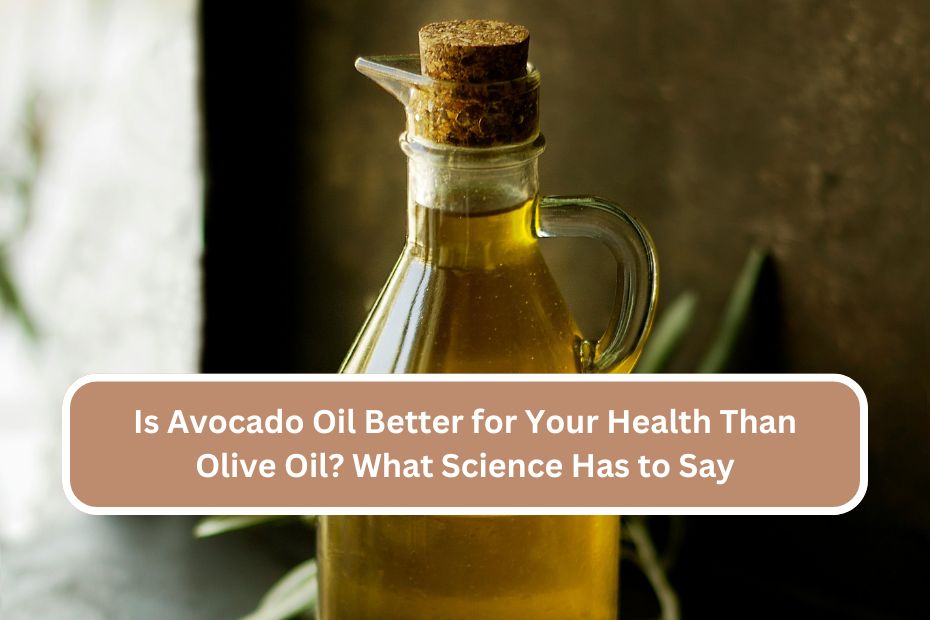When it comes to cooking and health, choosing the right oil is essential. Avocado oil and olive oil are both popular choices, each with unique benefits. But which one is better for your health? Let’s dive into the science behind these two oils and discover which is the healthiest option for your lifestyle.
What is Avocado Oil?
Avocado oil is extracted from the flesh of avocados. It is prized for its high smoke point and rich content of heart-healthy fats. The oil has a mild, buttery flavor, making it a versatile choice for cooking and salad dressings.
What is Olive Oil?
Olive oil, derived from pressed olives, is a staple in Mediterranean cuisine. Known for its robust flavor and numerous health benefits, olive oil is a favorite for drizzling, sautéing, and baking.
Nutritional Comparison: Avocado Oil vs. Olive Oil
| Nutrient | Avocado Oil | Olive Oil |
|---|---|---|
| Calories (per tbsp) | 124 | 119 |
| Fat Content | 14g (mostly monounsaturated) | 14g (mostly monounsaturated) |
| Vitamin E | 20% of Daily Value (DV) | 13% of Daily Value (DV) |
| Smoke Point | ~500°F (refined) | ~375°F (extra virgin) |
| Polyphenols | Low | High |
Health Benefits of Avocado Oil
1. Heart Health
Avocado oil is rich in monounsaturated fats, which can lower bad cholesterol (LDL) and raise good cholesterol (HDL). This reduces the risk of heart disease.
2. Skin and Hair
The vitamin E content in avocado oil helps nourish and protect the skin and hair, making it a favorite in cosmetic products.
3. Anti-Inflammatory Properties
Avocado oil contains oleic acid, a compound that fights inflammation, supporting joint health and reducing the risk of chronic diseases.
4. High Smoke Point
With a smoke point of up to 500°F, avocado oil is excellent for high-heat cooking without losing its nutritional value.
Health Benefits of Olive Oil
1. Rich in Antioxidants
Olive oil, especially extra virgin olive oil (EVOO), is packed with polyphenols, which combat oxidative stress and inflammation.
2. Supports Heart Health
Numerous studies link olive oil consumption with lower risks of heart disease and stroke, thanks to its high monounsaturated fat and antioxidant content.
3. Brain Health
The antioxidants in olive oil may protect the brain from cognitive decline and diseases like Alzheimer’s.
4. Digestive Benefits
Olive oil promotes healthy digestion and may improve gut health.
Smoke Point: Why It Matters
The smoke point of an oil determines how well it performs at high temperatures. When an oil exceeds its smoke point, it can release harmful compounds.
- Avocado Oil: Smoke point ~500°F (refined)
- Olive Oil: Smoke point ~375°F (extra virgin)
For frying or roasting, avocado oil is a better choice due to its higher smoke point. For drizzling or low-heat cooking, olive oil is ideal.
When to Use Each Oil
Use Avocado Oil For:
- High-heat cooking like frying or grilling.
- Neutral flavor profiles in recipes.
- Enhancing skin and hair care routines.
Use Olive Oil For:
- Cold dishes like salads or dips.
- Sautéing or baking at moderate heat.
- Adding robust flavor to Mediterranean-inspired dishes.
Science-Backed Studies on Health Impacts
- Avocado Oil and Heart Health:
Studies show that regular consumption of avocado oil can reduce cholesterol levels, decreasing the risk of cardiovascular diseases. - Olive Oil and Longevity:
The Mediterranean diet, rich in olive oil, is linked to longer life expectancy and lower rates of chronic diseases.
Which Oil is Better for Your Health?
There isn’t a clear winner—it depends on your cooking methods and nutritional goals. Here’s a summary to help you decide:
- Choose Avocado Oil if you prioritize high-heat cooking or want a mild-flavored oil.
- Choose Olive Oil for its antioxidant properties and traditional flavor in cold or moderate-heat dishes.
Conclusion
Both avocado oil and olive oil are excellent choices for a healthy diet. Avocado oil excels in high-heat cooking, while olive oil shines in cold applications and provides higher antioxidant levels. Incorporating both oils into your diet can maximize their health benefits and culinary versatility.

